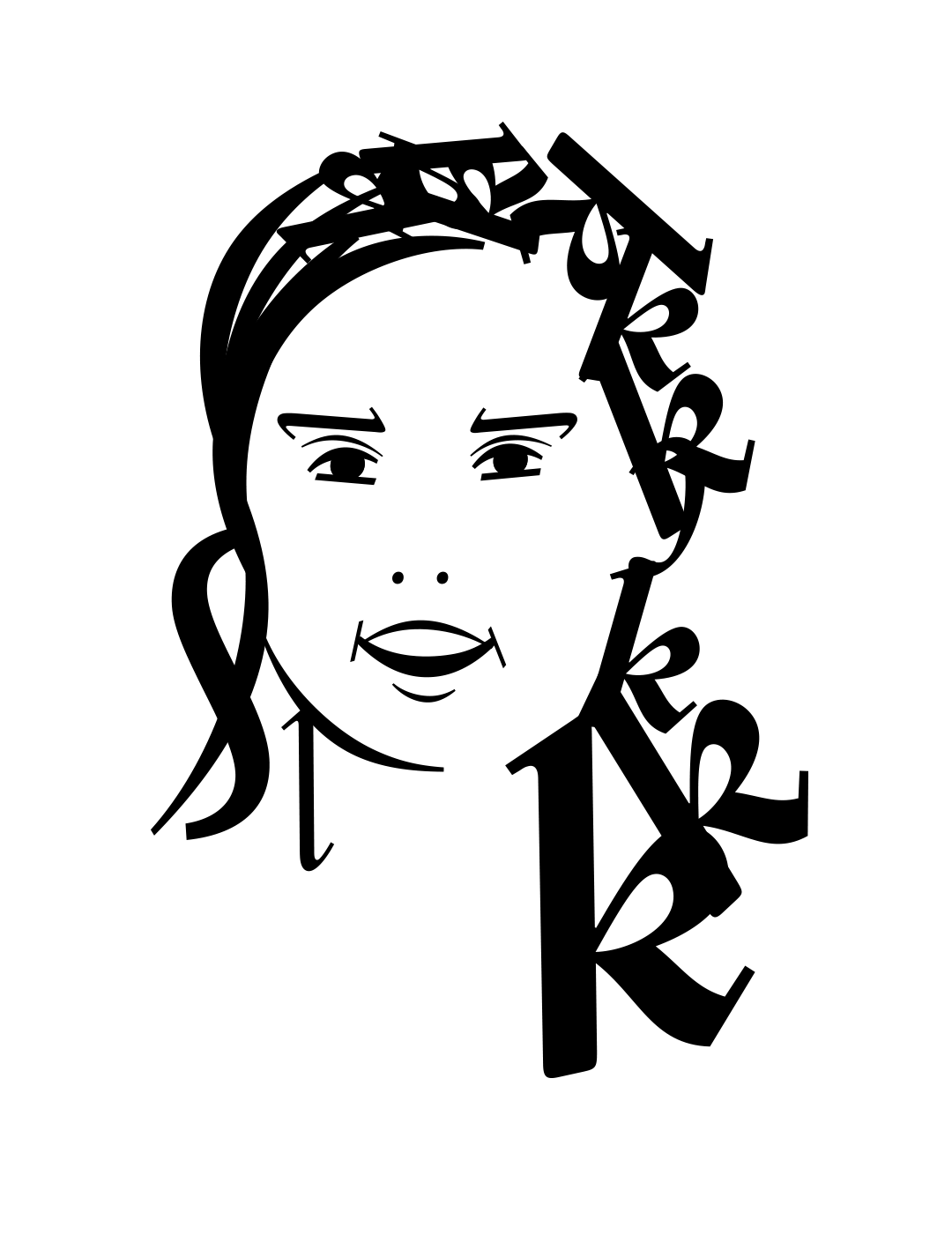Kaylene Langford--- 8 July 2015
By Lorenzo Princi
What do you, or more specifically, StartUp Creative do?
I run StartUp Creative, that is, a business that helps young people turn their passion into their careers. So I do that through the work-- workshops, one-on-one coaching and producing a magazine that inspires young people. Yeah, tells a story-- showcases the stories of young entrepreneurs to inspire more young people to get up and give it a crack.
"I decided to build my own dream job."
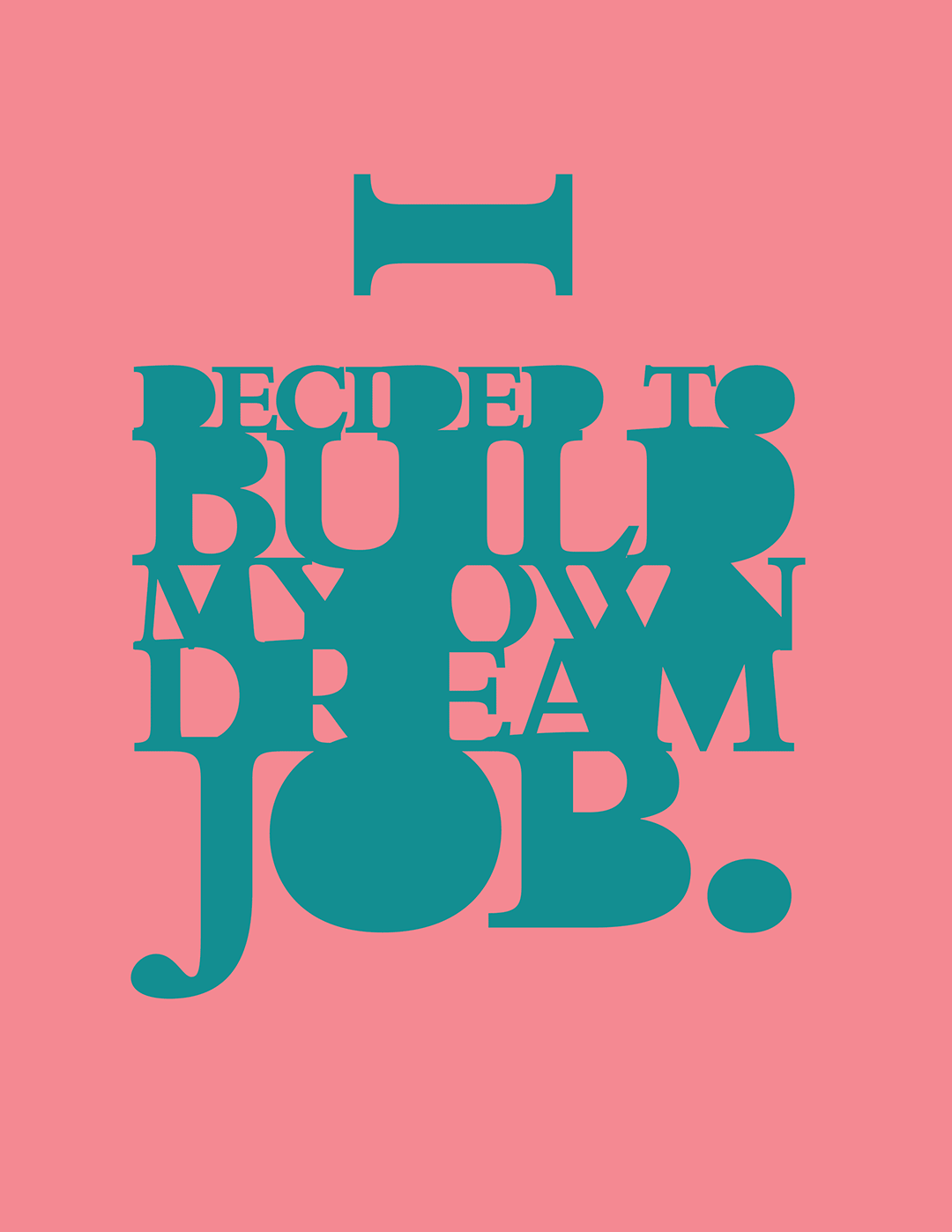
You worked for many years in various youth focused roles in social services and education, before turning to focus on business start ups. How did you get into that type of work and what did those years spent helping young people mean to you?
Yeah, cool. Well when I left school, I always wanted to be an outdoor education officer, so I went to the outdoor ed camp, you know like a school camp kind of thing, down the road and I just knocked on the door and said, “will you give me a job?” and they’re like, “well, are you qualified?” and I’m like “no” [laughs] and said “but give me an internship and I’ll learn” and they’re like “oh, we’ve already got an intern but I think he’s almost due to finish up just, you know, we’ll let you know when he’s finished and--” so a couple of months went by and they didn’t get back to me so I went back knocking and was like, “I want a job.” Eventually they were, “yeah, okay, okay, the intern is finished, like, here you go.”
So they let me in as-- not an intern-- like a traineeship or whatever and within a couple of-- at the time I was seventeen, because my birthday is in December, so I finished school like, I was sixteen when I finished school and was seventeen for a whole year out of school. So in that year I just learnt how to run school camps pretty much… rock climbing and abseiling and bushwalking and you know, talent quests and stuff and loved it and then, not many people know this but I went through a bit of a religious phase where I was-- volunteered in the Church-- in the Catholic Church as a youth worker for two years. So I went out to do NET Ministries and my job was pretty much to go and help encourage the presence of young people in the Church.
So what I found is that-- at the time I was in quite a charismatic group in the Church, so I was really enjoying that community of vibrant young people who were really positive and I guess that it was a place for me to belong. And then-- so my job I guess in that role was to portray, what the good the Church could do to young people who didn’t want a bar of it so I guess I look back on that and I go-- I learnt to turn what was, you know, quite a dull message of go to the Catholic Church, into like creative engaging ways for young people to relate to it, you know, in some sense of the word.
So I did that for a couple of years and got a job on the Gold Coast as a youth worker in a high school and did-- again I was there for four years and my job was to write programs for young people. So I got to kind of rewrite school camps and retreats and like, develop programs for kids on the fringes and young girls who had self-esteem issues and just-- my passion has always been making things relatable. So delivering messages in exciting and different ways rather than just like, you know, that school kind of feel or textbook kind of look.
I’ve always been like, “well, you know, if you make something look pretty then people are more inclined to want to learn it.” So when I was in school, that was-- working at Marymount (College) I did that and then my passion came working with the kids on the fringes. The kids who were kicked out of every other school. They went to this one school and that was called a flexi school and I had to teach them Maths and English but they were like, the kind of kids who like kick holes in walls and tell you to “fuck off” and all those kinds of things.
So I had to write a program that was really active for them so we-- I got them to build a football field and through that taught them Maths and English and then we could report on them. So kids were getting positive report cards who’d never even, you know, got a report card before because we found a different way for them to learn.
So, yeah, from that I went to work at Queensland Council Social Services which is like the peak body of social services in Queensland and the job was to help reform the funding bodies across the-- youth funding across Queensland but it was like-- what I thought at the time was like my dream job. Like, I was working with these at risk kids and it was so draining and I’d put up this vision board and was like, “I want a new job” like, “I want, this much pay rise, I want to be working in a nice office so I can wear nice clothes and you know, I want to be travelling for work and blah, blah, blah.” and when I got this job it just ticked all of the boxes, like literally, I was like, “it’s my dream job!” [Laughs] and then I got there and I was pretty much working in the government’s pocket and it was just like a nightmare, like it was just-- I was working at a really minute level with government and from what I saw, it was dishonest and you know, driven by money and things like that, it wasn’t for the people.
Yeah, so when I was working at QCOSS (Queensland Council Social Services) I was hating it, I was commuting like an hour-- like probably like four hours a day to get to and from work and I woke up with really bad headaches. I was like-- I went to the doctor and the doctor was like, “oh you need to go for a brain scan” like, so I spend forty-eight hours convinced I was dying [laughs] and then eventually this scan came back clear and in that forty-eight hours I was like, right what would I do differently with my life what would I change, like if I’m dying [laughs] what am I going to do with my last three months. And then, when that came back clear I was like right, I’ve got to do those things anyway.
So that was when I dreamt up StartUp Creative and was like right, “here’s what-- this is what I really want to be doing. I want to be working back with young people, I want to develop and write creative programs and working you know, with passionate people who really care about doing exciting things and stuff like that.” Yeah, so that’s where StartUp Creative came from... I decided to build my own dream job.
"Try all of these different things and tell me which one excites you the most."
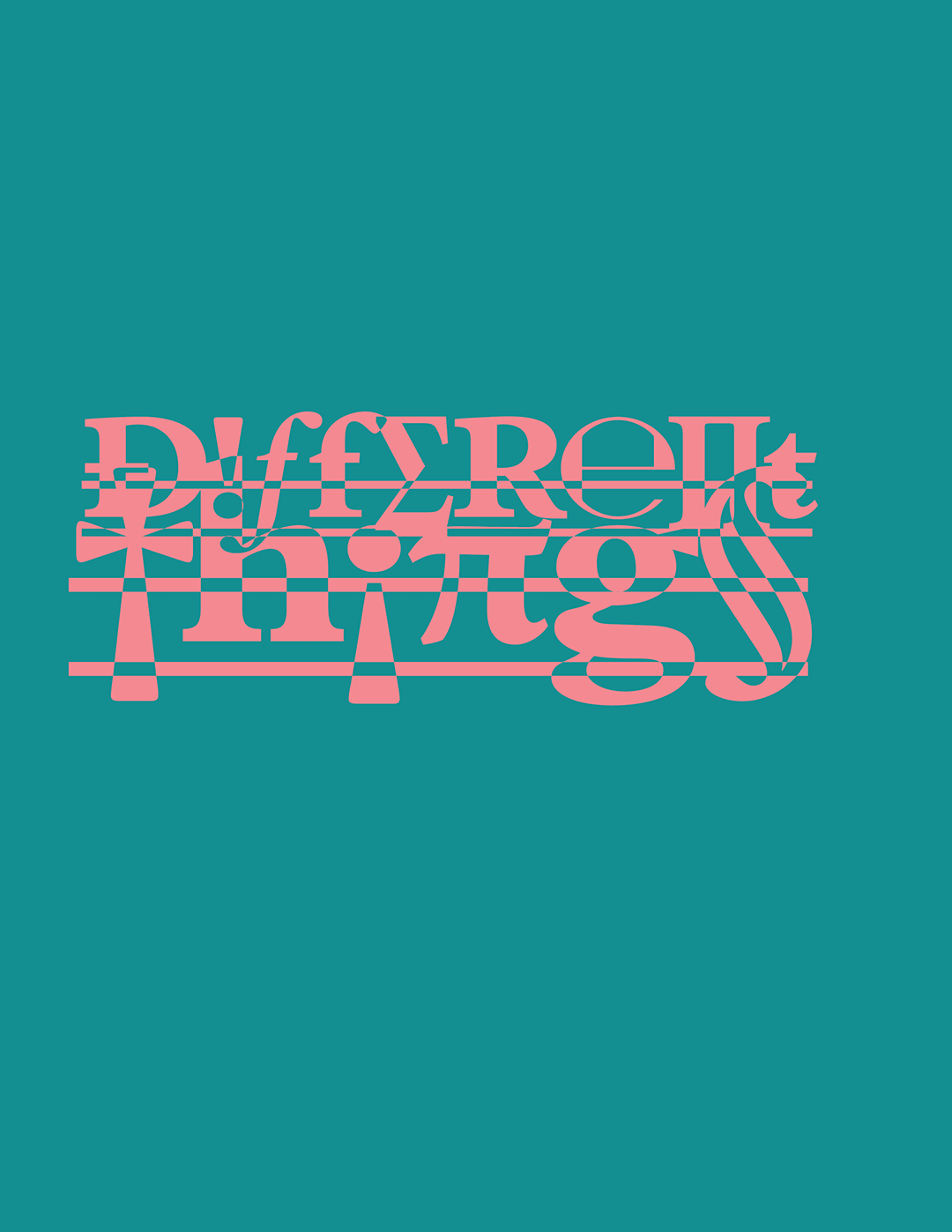
Why such a focus on young people?
Well, I guess looking back on my earlier career I’d always been attracted to the kids who were about to get kicked out of school or that you know, were-- I, I found the schooling system is very like, black and white. It’s like, fill in this blank to get the A. It’s not-- there’s not very much like, “here, try all of these different things and tell me which one excites you the most!” It’s like, “Maths, English or one of these three electives” and it’s very textbook and “let’s deliver the curriculum and answer the correct responses” and there’s no creativity and inspiration in that. And so the more and more I came across kids who were just like-- they didn’t fit the schooling system and I think that in Australia, unless you get an OP and go to university, your other options are being a tradie or you know, working in a coffee shop.
Like there’s not much else for you. If you think of America and all their different types of colleges that they offer-- even their schooling high school system is based around, like as many different things as you can do. Like it’s not just driven to feed universities and I guess-- just being a kid who’s like, couldn’t really sit still, university bored me I was-- like I’m a very practical learner, like, give me a book and I’ll read it back-- that I like or that I want to learn about and I’ll read it inside out or I’ll-- I’m happy to go and approach people and ask them to teach me something or you know, I’ll Google it and-- I can be very self-taught and self-driven when I’m passionate about something and I guess where-- what the stories I was hearing with young people were that, there was young people who-- two stories that really stood out for me:
One was a girl who was in her late twenties, she’d just graduated from her Masters at university, that she’d actually-- she’d got a scholarship to even do her Masters, top of the class and she was working in a coffee shop and was really down and out about it, she was like, “I’m a dropkick, like, I’ve got all these studies and I can’t get a job.” And then another guy who was-- just finished his PhD, so he was technically like a doctor and he couldn’t get a job, he was working in a BWS (Beer, Wine, Spirits), like a bottle shop and he couldn’t-- and he was the same, like, “well, I want to be a writer!” Like he had just finished his PhD in creative writing so it was just you know?
There’s all this talk about the unemployment for young people and I just-- I’m passionate about giving young people a go and when you actually find a young person who goes, “Oh, I really want to do this!” And like you hear them talk, they don’t sit there and go, like someone probably a bit older, like my mum’s age or in their late forties, would sit there and go, “you know, I want to do this but you know, I’m going to wait till the kids have moved out, then I’ll do it.” And like, there’s-- when you’re young you have a sense of fearlessness and willingness to take risks and all of those things and that’s what I love, like I love working with that. So I guess I wanted to focus on harnessing that energy, you know and empowering it, rather than people going, “young people are so risky...” [said in a mock old lady Australian accent] like it’s a bad thing! Like, “WOW! If they’re risky, that means they’re going to innovate and that means they’re going to find new ways of doing things because they’re not afraid of it failing” and things like that…
"I’m passionate about giving young people a go."
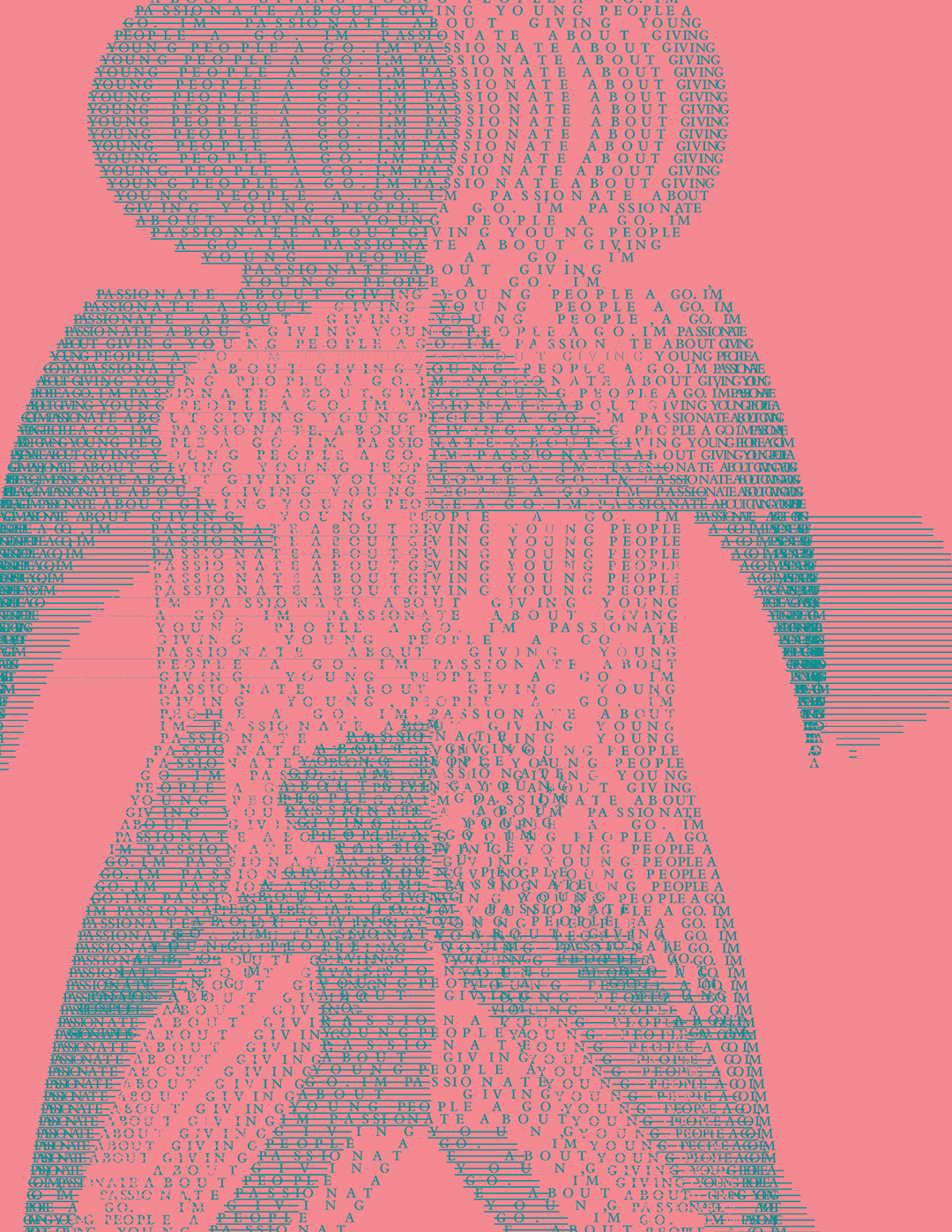
You’re dedication to your work would indicate that you have a high empathy for others, where does that spring from?
It’s funny because I don’t really see myself as this, like, I see myself as someone who’s creating my own job and it just so happens that the job I’m creating helps people. But I, my-- I do admit when growing up my parents like, were both into social services. Like at Christmas time my dad would, would go and organise a Christmas lunch at the men’s shelter for all the homeless men and at Easter time my mum would take us-- we would collect donations of Easter eggs at school and we’d deliver them to the elderly with no family in their-- old people’s homes.
So I grew up doing that, quite as-- really normal. Like at age fourteen I was working in an op-shop after school, like volunteering and I’d always done things like that. So, I guess it comes from there, yeah... I mean like, I do love helping people and I do genuinely love sitting with people and helping bring their ideas but I also like, want to build an empire! [Laughs]. So I guess there’s that balance… there’s a lot in it for me as well, like I can’t say that I’m a completely selfless person that’s all about other people.
"Commit to that, read that to yourself every single day then the universe is going to conspire to get you."

Coming to you is one of the first steps for some people in starting their own business, what do you feel are some of the things that stop people from taking the leap and starting their own businesses?
I reckon fear would be the number one thing but I also think conditioning, like the generation before us were told-- like you know, they had to work so hard for their money and you know they just went and did shit jobs because they had-- because they had no option and stuff and there’s an expectation on us to have to have to do that. So there is like that expectation that schools-- I don’t know if it was your experience but high schools very much drive you towards getting a university degree and graduating with a great job.
Or even you get the university degree and-- the number of creative people that I’ve met who are so creatively brilliant and they go to university and study creative design and marketing and whatever and then they get the top marketing job and they’re just doing shit jobs. There’s no creativity and then they like come to-- in their late-- like they’ve been in marketing for five years and they go, “oh I hate it! I want to do my own thing.” And it’s like, “well I’ve been doing my own thing for five years so I’m ahead of you.” you know? You learn so much more in the real world but some people are suited to university I guess but I think fear and self-doubt like, it’s just your battle in your mind, a lot of what I--
When I started StartUp Creative-- it’s like even to this day I read so many books that are all about, like, using your mind and manifesting what you want and setting goals and feeding your subconscious. Like I’m such a strong believer in that if you put it out there and you genuinely want that and you commit to that, read that to yourself every single day then the universe is going to conspire to get you there and that’s something that keeps me driving even though I running like a start up that doesn’t bring in big money or anything like that, I just-- I go, “nah, every month I write new goals and I put them up on my wall.”
I set myself really clear targets of what I want to achieve and how much money I want to earn and who I want to collaborate with and I put it up there and I don’t know if you saw on Instagram we got into the Virgin (Australia) lounges…
Lorenzo: Yeah, that’s pretty cool!
Yeah, that’s was like on my-- that’s been on my vision board for two months, you know? Like I read it every single day of going I want to be in the Virgin lounges, so I think, self-doubt you know? I had a moment this afternoon where it was, “Argh! This is so hard!” Like it’s just one day at a time but you just-- yeah, it can kill so many people, if you don’t have a supportive partner or family or friend who go, “what the hell are you doing?” Then that’s going to feed into that. It’s just easy, it’s the safe option, to go and just get the nine to five job I guess.
"Fear would be the number one thing but I also think conditioning."

What is your approach when guiding young people through the unknown?
I guess at a lot of what I do is I validate people. Like, I definitely go, “yeah”, like if I-- most people who are willing to invest the money and coming to spend-- coaching or a workshop with me then you know they’ve got an element of commitment. So, they come to a workshop or a coaching session with an idea and you can just see their face light up and for me that screams, like passion and when you’re passionate about something then I don’t think that you can fail, like I think-- well there will be elements of failure, but there’s I think-- you can’t really fail if you’re willing to adapt. You can test things and it might not work but then if you adapt it you’ll find a way to succeed.
So when people come to me and they-- they come to me and they speak about what they want to do I just go, “yeah, that’s great, you can do that!” Like, “you’re the person to do that!” Or if they’re not the person to do that, which I very rarely come across, I go, “well, who are you going to work with and who has that expertise that you can drive towards?” And yeah, so I guess, it’s like being that supportive voice that they don’t have in their head but also just keeping them really focused, giving them tasks, like, when I started StartUp Creative and in my past-- you can go to business mentors and people in the community and go, “hey I really want to do this…” and they go, “yeah, never give up!” Or they give you some really generic advice and you’re just like, “what the fuck does that even mean!
Okay, well where do I get that from?” Or you know... so for me it’s like I want to give really practical advice, so if someone comes to me and goes, “I want to do this”, I go “well, do you have an ABN? Okay, what’s your business name? Have you registered the business name? What’s-- who’s your target market? Have you secured the social media handles? Where are you going to start out that’s a low cost version of this first before you go and risk your mortgage and you’re kid’s savings on the big product?”
So it giving them really practical stuff of going, “where can we start you out?” Here, “what’s some steps you can take” and just try not to let them get overwhelmed. Because I even experience it too, it’s like-- you’d know what it’s like, “I want to do a zine” (referring to Caffeine & Concrete) and the you go, “oh okay, where do I start?” and then the thought of starting, you just “oh shit! It’s too big” but if you go, you know, someone like Tania (Debono, Volume 6) said, “why don’t you start with building the platform on your computer” or something like that, build a template on your computer, then you can go, “yep, okay, I can do that” so I guess it’s about keeping people focused.
"You can’t really fail if you’re willing to adapt."

Do you feel pressure or a sense of responsibility when a person approaches you to help them with an idea?
Yeah, definitely, lately I have a little bit because as the reputation of StartUp Creative grows I-- I used to have this thing where I wanted to be famous, like my whole childhood I’d always been like, “I want to be famous! I’m going to be famous! I don’t understand why people wouldn’t want to be famous” [laughs] and as your reputation grows people like start to look up to you a little bit and you just-- I actually found it uncomfortable because I’m just doing it and it’s growing and “don’t idolise me, just do your own thing” which is a weird place to be in because at the same time you want your reputation to grow but you just don’t want that to come with it...
Recently I had a couple-- a husband and wife, they’re like, maybe 26. They owned a house and he worked in the mines and she worked in hospitality and she was hating her job as a manager of someone else’s business and they came to me and said, “I want to start my own-- we want to start our own. Like, I’m working in hospitality I may as well work in my own business.”
So they had already done some work on an idea for a coffee shop and I sat down with them and helped them do it and they said, you know “we’ve got all of our-- like all our twenty-five thousand dollars saved, we are going to pull all of this into the business, do you think we should do that?” [Laughs] I was “what?” So I think I just referred them to an accountant. I was like “I can’t advise you on that.” But it’s about empowering people, like I guess, they’d put in place plans of their backup options that were like, he could always go back to the mines and make that money back pretty quickly and she could run the cafe or if the cafe’s not going well then he goes back to the mines and work there and they go back to what they’ve always done.
But I always say, you know, I can help you with like social media strategies and things like that and all of that but it’s about putting a team of people around you. You know, putting the accountant and the lawyer and you know, the barrister and you’re chef and all of those people around you, to make sure you like you are buffering yourself with a really, really good plan.
Yeah, they ended up doing it and they own-- they run a coffee shop now which is pretty cool! But yeah, there’s an element of like pressure, it’s growing. I never used to think it but I definitely go, sometimes I go into meetings and I go, “I hope I can help this person” but I’ve never had bad feedback from a coaching session, I’ve always had people go “wow that was amazing.”
"It’s about putting a team of people around you."

The numbers are staggering in terms of businesses which fail. Have you ever felt helpless during a particular consultation?
Kaylene: I did have one guy who came to me and he’d just gotten back from traveling around Europe and he’d seen all of these hub-spots or something. He was trying to explain them to me as kind of like co-working spaces I guess and he wanted to do one here. The concept was kind of good but he was really unclear and he didn’t quite get how to like-- I guess he wasn’t really practical, it was very much like an idea that you never knew like how it was going to get from his head to actual reality, because I’m not sure if he ever really wanted that either? Like it was a huge project, what he pretty much wanted to do was have a spot where he could get-- like actually it was a good concept I just don’t think that he was the right person to do it.
He wanted to have like a hub-spot that was a co-working space and it could also be like a hot desk (office) for people who have like international employees, so maybe like Lego or something, like one of those big companies who are based overseas but have Australian workers or have workers who travel to Australia, who could have like a membership at that desk and bring some of the innovation that was happening in Europe over to that space.
Like for me, I look at that kind of project and go, “you know, if people are really driven they will make it happen” but there are elements of going, “okay, well you probably need like big players in the business industry to get something like that off the ground.” Because it’s a space, so you have a huge outlay from the beginning and he was working in a coffee shop and like was making like twenty-two dollars an hour or something like that, so it’s not like he had the capital to make it happen and had never really worked in like, you know, managing-- like he really just didn’t have the industry expertise. Yeah, for me it was a bit of a, “here’s some other people who may be--” I think I referred him to some other people to help him get clear on his idea and he never really quite did… but I’ve never really felt like, “oh my goodness don’t do that!”
How do you deal with situations where you didn’t think the idea would work? Or is there ever a situation where perhaps not knowing the details of a particular industry might make things difficult. Does it matter that you might not know the content?
Yeah, I do a lot more of I guess, the business side of things, or like, you know them as an owner. So like, they are -- I guess the people that I work with, they’re the professional, like I’m not the professional in all of the industries. What I’m the professional in is, is helping you articulate what it is that you want to do and make that really clear. Help you hone in on being able to pitch that. So if I say, “what do you want to do?” That you can go “Boom!” and I understand it. So it helps them clearly articulate that and then I make people make really clear plans as to what to do next.
So, like a lot of it-- I’ve had people at all different stages in my business who come to me. Like I had a lady who’s making like a skincare product with this special hydrogen technology that they use in pools which is like a natural thing and then I have coffee shop owners and then the other day I had an online-- a lady who wants to do an online kind of collaboration kind of thing and, so I guess it’s kind of not really industry specific at all. It’s either, “you’re the expert in your industry, or I will probably point you in the direction of people that you need to connect with to help you be an expert in that industry.”
With that, I try to do a lot of networking and like, if I go to a coffee shop and I really like it, I’ll go and introduce myself to the owner, or if I’m in the Apple store, I’ll go and ask for a bus-- the business manager expert or-- So that I can have a network in lots of different industries to help my clients.
"Helping you articulate what it is that you want to do."
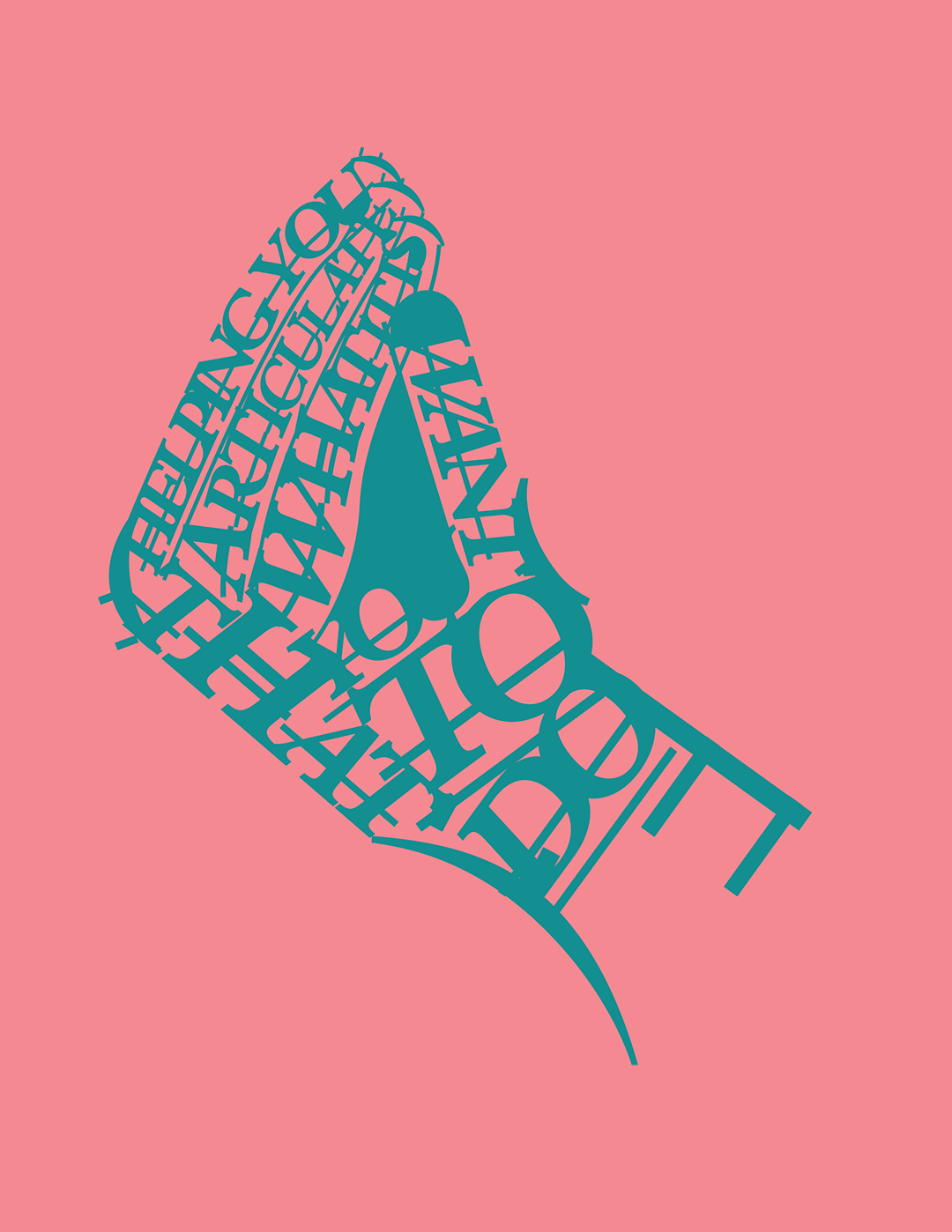
Networking events are a big part of start up culture, what do you enjoy about them and do you enjoy hosting them?
Well, I love events, I’ve always enjoyed running events, putting events together and things together like that and when I was-- a couple of years ago when I was like twenty-- actually I think in high school I was like, “I want to be an event planner” so I think that naturally comes to me. I just really love detail and stuff.
But I really enjoy events because I like to do them differently-- like I really critique the hell out of an event when I go to an event, like I’m quite a hard judge [laughs] I’m like, “okay, what’s the catering like,? Was someone on the door when I got there? Have they got a good MC? Is the venue nice? Are the toilets clean? Do they have a vegetarian option? Like--”
So that’s probably just naturally who I am but I like-- So I like to put together events that are a bit different, so kind of like how I said that I deliver my programs in ways that are creative. I like to do events at nice venues where you can see the ocean and put on a healthy meal that’s not like, white bread sandwiches [laughs]. So I enjoy giving that experiences plus I’m a real people person and like I-- I feel like my ability to be vibrant and inspiring is a lot through my personality. So when people hear me speak that they can be inspired by that and when they are inspired by that, then I guess that’s where they become big fans and they help you grow your business...
"I feel like my ability to be vibrant and inspiring is a lot through my personality ... when people hear me speak."

What’s next for Kaylene and StartUp Creative?
Yeah, [Laughs], actually I was saying to someone today, at the beginning of this year I was reading Richard Branson’s book-- his autobiography (Losing My Virginity) and I was like obsessed with all-- my mind would just run wild with all these things I wanted to do like I came up with the idea of running a publishing house so that I could publish young creatives who wanted to publish books, and what else did I come up with? I wanted to start a start up fund that I could invest in start ups and get big businesses and-- so it was having all these meetings and doing all these things and it wasn’t until I say down to start planning Issue 2 (of the StartUp Creative magazine) that someone said to me, “can’t you just pick three things and really just nail those” and so I picked coaching, workshops and the magazine and I’ve just been focusing on that.
So my job-- my kind of vision has been just to focus in on doing those three things and doing them really well. But I definitely-- my audience is growing interstate, like Sydney, Melbourne and Western Australian, South Australia and then-- even like internationally, like the US are really starting to notice StartUp Creative because the start up scene is so big, and London even. So I’d love to be able-- I’m working on an eCourse that will be able to-- I guess it’s like one of my workshops-- you know? E-Version so that I can sell internationally. Yeah, that’s kind of next steps to like, producing some online stuff that can grow StartUp Creative without me physically having to be there.
But I’d love to go-- to visit some of The States and UK and do some like kind of-- what’s going on over there and bring it to Australia kind of stuff because I think Australia is kind of really-- like we are so new in this scene, like it is really fresh here, so to be in it from-- in the scene from the beginning I want to-- really want to be a leader in the space and try to stand out as a creative leader rather than just like, you know, the start up scene can be very tech heavy so find some ways to creatively stand out.
But my big, long long term goal is to, I’d love to run a school, like a year eleven and twelve alternative where it’s an entrepreneur-- like you get your year twelve certificate through a StartUp Creative high school [laughs]. I met someone who did it for music, he helped start a music school in Brisbane and I was, “I’d love to get an entrepreneur school together.” Yeah, that’s my dream!
Find Kaylene at StartUp Creative
Proofreading by Cinzia Forby & Luke Yates. Photos of Kaylene by Klee Photography and Trent Mitchell.
